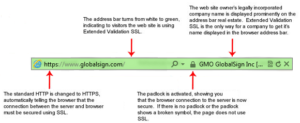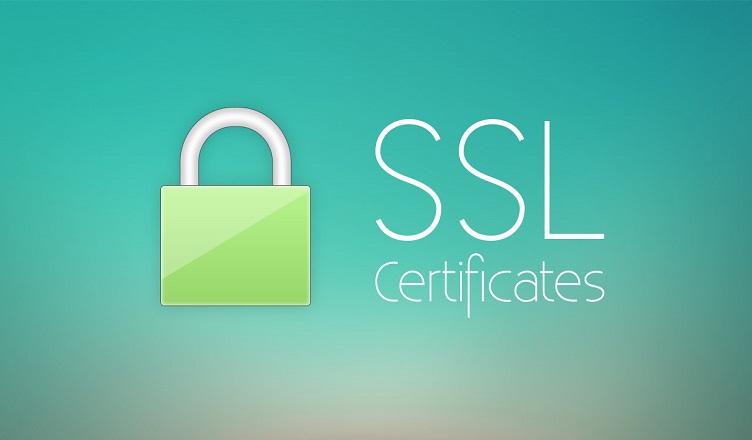Techssocial | From eCommerce to banks, why even military agencies want to ensure their data security on the web. If you are frequently using the Internet, you must have noticed that some websites have their web address beginning with http while others have https. The ‘s’ in the HTTPS means that the website is configured with an SSL certificate. You can get the certficiate from the reliable SSL providers and premium resellers like SSL2BUY.
As someone who spends most of the time exploring web security measures and software, I get this question often: “What is SSL certificate? Why is it important?”
In this article, we will be explaining in detail the answers to these questions and much more.
Table of Contents
What is an SSL certificate?
SSL stands for Secured Sockets Layer. SSL certificate is a bit sized document that encrypts and decrypts information exchanged between a user browser and the website’s server. By scrambling the data being transferred, it helps protect confidential information like data records, user credentials, payment information and much more hackers and cyber security attacks. It is considered as an essential requisite for websites that handle payments or collects/stores sensitive information online.
An SSL certificate is made of up of several components that facilitate the encryption and decryption of files:
Signing Request
A .csr file which is used to encrypt and decrypt information when the data is sent from the sender to the 3rd party. It is used to generate the public key.
Private Key
A “.key” file installed on the server. It is usually kept secure and confidential since it is the key which encrypts requests raised by the user system.
Public Key
A “.crt” file is also installed on the server, but unlike a private key it is used to connect to any device. Any user on the web can have a copy of it, but will not be able to tamper the security of the website’s server.
Intermediate Certificates
These are public files that need to be installed on the server so that users’ connecting devices can verify the website’s certificate without any error messages.
Self-signed SSL certificates
A self-signed certificate is an SSL certificate which has been signed by the website owner or the hosting provider has signed. The certificate details like organization name, owner details, location can be created and self-attested.
Self-signed SSL certificates do not enjoy as much as recognition and security as SSL certificates signed by Certificate Authorities.
Who is a Certificate Authority?
A Certificate Authority is an Internet agency, predominantly online security agencies which sign the SSL certificate being issued to a website owner. They follow a rigorous process of verifying the ownership and information about the website before granting a certificate in their name.
A Certificate Authority usually verifies the following:
- The website domain name and the name applied for in the SSL certificate
- Other particulars like owner’s details, location, etc. of the website which will be included in the SSL certificate
As a result of this verification process, CA signed SSL certificates enjoy a higher level of credibility. It is not possible for someone else to get an SSL certificate in your name.
Types of SSL certificates
Thanks to wide expansion of eCommerce and Internet applications, several types of SSL certificates have emerged in the recent past. Each type of SSL certificate offers a slightly different level of security or encryption which benefits its users.
Here are the most commonly recognized types of SSL certificates:
Extended Validation (EV) SSL certificates
EV SSL certificates offer applicants the facility to apply SSL certificates for their owned domains. The domain name and the ownership is verified by the Certificate Authority before granting the certificate. Also, EV SSL certificates are featured by a greed address bar and a padlock symbol which when clicked reveals the certificate details. EV SSL certificates are audited on an annual basis to ensure the integrity of the certificate.

https://static1.globalsign.com/images/ev-green-bar-example02.png
Organization Validation (OV) certificates
Similar to EV validation certificates, OV SSL certificates are also verified and vetted by the Certificate Authority. The domain ownership is also cross-checked to ensure the safety of the end-users. Unlike EV SSL certificates, OV SSL certificates are not audited or cross-checked annually.
Domain Validation (DV) SSL Certificates
The Certificate Authority checks the right of the applicant to get an SSL certificate for the specific domain applied for. The company information and other details are not vetted. Also, no annual audits or verification happens for DV SSL certificates.

https://static1.globalsign.com/images/ssl-standard-bar-example.png
Wildcard SSL certificates
Wildcard SSL certificates are used to secure any number of sub-domains attached to a single domain. A wildcard character (*) is replaced with the sub-domain name to secure it. It is an ideal choice for those website owners who have a single domain name but have many sub-domains attached to it, like anything.yourdomain.com, mail.yourdomain.com, etc.

https://www.digifloor.com/wp-content/uploads/2016/05/wildcard-ssl-features.jpg
There are several other types of SSL certificates too with minor variations in their characteristics.
They include: code signing certificates, low assurance certificates, Unified Communications certificates, web server authentication certificates, shared SSL certificates among the rest.
Why SSL certificates are important?
SSL certificates are modern day digital shields that protect the data and information stored online. It creates a safety tunnel for websites and users to exchange data between each other without being bogged down by the stress of eavesdropping, hacking or data interception.
Moreover, SSL certificates offer a plethora of other benefits to businesses including establishing ownership of the business, boosting SEO ranking of the web page and also improving conversions.
SSL certificates are a must have for eCommerce stores, banks, B2B eCommerce businesses that accept or transact payments online. As a matter of fact, the web environment is slowly being tweaked in favor of HTTPS encryption. WordPress, the most widely used CMS platform has already warranted the use of HTTPS for its web users. Similarly, Google the search engine giant ranks web pages with HTTPS higher than non-secure web pages.
All this leads to the ultimate need to have SSL certificate, irrespective of the size and volume of traffic or business nature a website handles.
Hemant is Digital Marketer and he has 6 + years of experience in SEO, Content marketing, Infographic etc.

Hello! I just wanted to ask if you ever have any issues with hackers? My last blog (wordpress) was hacked and I ended up losing several weeks of hard work due to no back up. Do you have any methods to stop hackers?